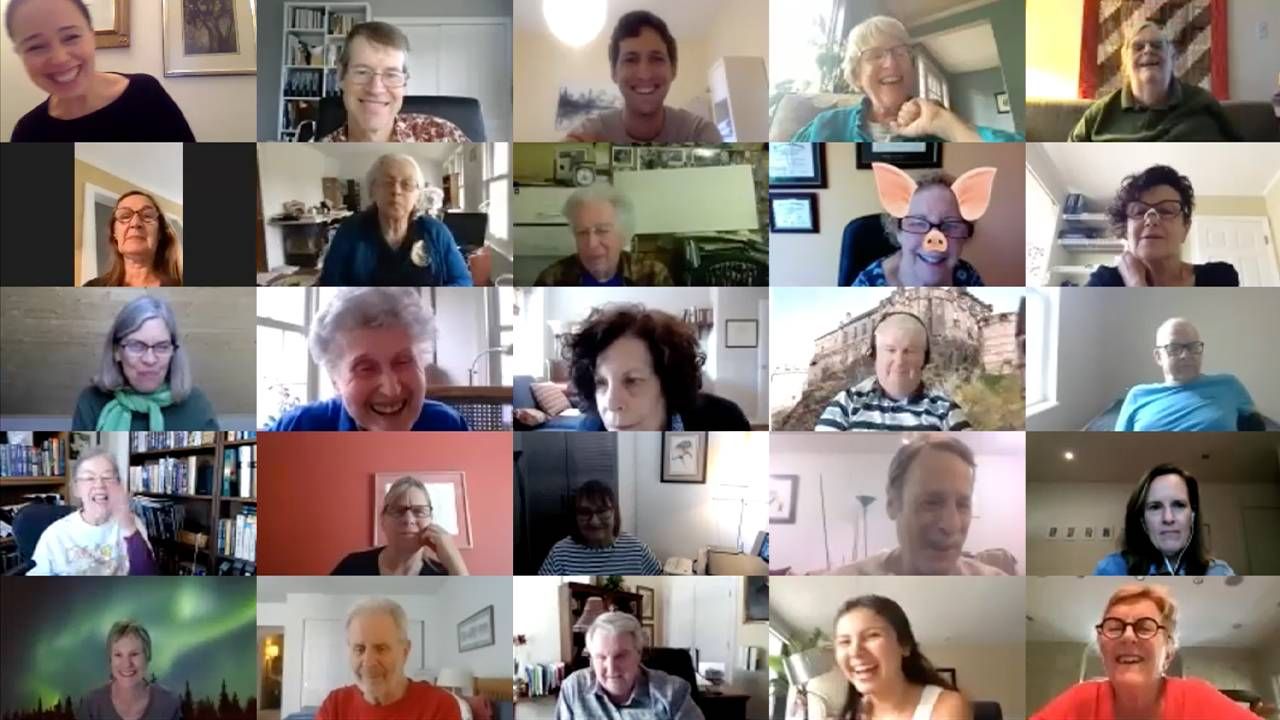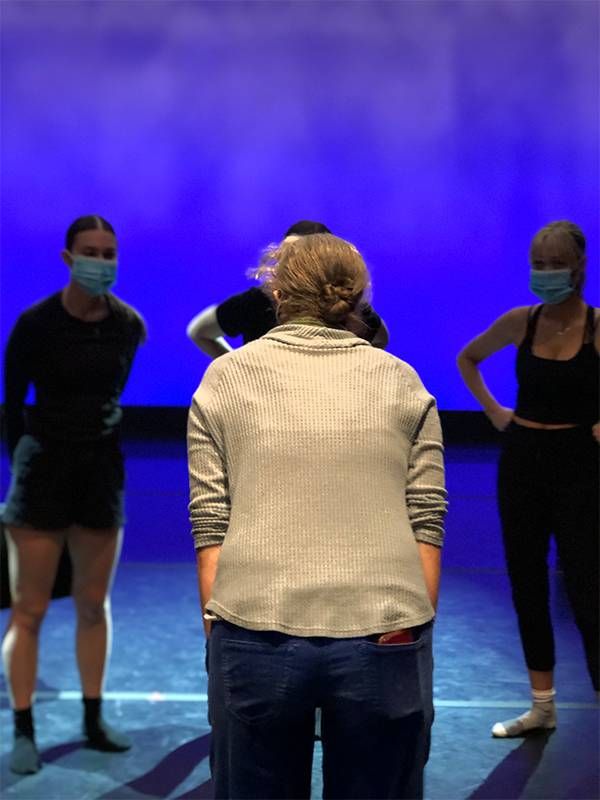The Power of Intergenerational Connections to Reduce Loneliness
Age Boom Academy experts explain how intergenerational connections boost happiness, too
One thing the pandemic has taught us: intergenerational connections can be extraordinarily powerful for older and younger people when they're required to practice social distancing. During my recent fellowship in Columbia University's virtual 2021 Age Boom Academy for journalists covering aging, I learned about a few successful intergenerational strategies that have valued older adults during COVID-19 times.

The theme of this year's Age Boom Academy: "Combating Loneliness in Aging: Toward a 21st Century Blueprint for Societal Connectedness."
Here are highlights:
Why We Need Intergenerational Connections
Setting the stage for the need for intergenerational connections in America, Dr. Linda Fried, director of Age Boom Academy, dean of Columbia's Mailman School of Public Health and a Next Avenue Influencer in Aging, noted that the United States has a serious age-segregation problem.
In a recent article for the American Society on Aging's Generations magazine, she wrote: "Societal ageism, which makes older individuals invisible and devalued in society, and age segregation in housing and in work and volunteer roles have resulted in the United States being the most age-segregated society in the history of the world, with loss of intergenerational contact and solidarity."
"There is now a potential opportunity to build on the greater empathy, compassion, caring and concern that have been shown towards those experiencing loneliness and social isolation."
But Roger O'Sullivan, director of ageing research and development at the Institute of Public Health in Ireland spoke, noted that the pandemic has actually opened the door for more intergenerational connections.
"There is now a potential opportunity to build on the greater empathy, compassion, caring and concern that have been shown towards those experiencing loneliness and social isolation," he said, "and to set in place policies and structures to address root causes and to support healthy choices."
Reducing loneliness and isolation, noted Dr. Carla Perissinotto, a geriatrician and palliative medicine physician at the University of California, San Francisco, can improve health in numerous ways. That's because loneliness and isolation can cause or increase health problems including dementia, cardiovascular issues, diabetes, stress and other mental health woes, Perissinotto said.
Intergenerational Connections in Action
Throughout the uncertainty, anxiety, loneliness and isolation felt during COVID-19, social entrepreneurs, nonprofits, researchers and other organizations have been researching the benefits of intergenerational technologies, helping realize the potential for connection, compassion and kindness.
When Joy Zhang, CEO and co-founder of the social engagement startup Mon Ami launched her business in 2016, she told the Age Boom Academy Fellows, she couldn't know how impactful her technology would become years later addressing social isolation and loneliness. But during the pandemic, when many older adults and college students couldn't see their families, Mon Ami has provided them with unexpected joys of connections.
Its technology lets older adults connect with younger ones who can address their basic needs, such as food, medications and companionship. Mon Ami now partners with over 20 agencies across nine states, such as the federal AmeriCorps Seniors program and Sage USA (which offers advocacy and services for LGBT elders).
Dana Griffin, co-founder and CEO of the intergenerational startup Eldera, said she's seen the impact her global online community has had, leveraging the wisdom of older adults as an asset for the next generation.

Griffin's mission stems from being raised by her grandmother. She explained how valuing older adults as social capital lets Eldera connect the wisdom and experiences of "vetted mentors [with at least six decades of life experience] with kids for story time, help with homework or just a friendly conversation…a virtual village with a real soul that activates our elders as assets to society and their wisdom as a service to humanity."
Making Intergenerational Connections Through Dance
Chapman University's Julianne O'Brian, chair of the school's dance department, shared the success of her intergenerational dance program during the pandemic, connecting dance students with a local senior center.
Students connected by phone with the older adults and listened to their poignant stories, ranging from being a Holocaust survivor to struggling with depression. The students then worked with their instructors and choreographed dance performances, capturing those older adults' lives in dance.
O'Brian said, "As people age, they don't feel valued, they don't feel that their stories mean much. Seeing their lives in dance was tremendously meaningful and formed an emotional connection with the students reenacting moments in their lives."
She noted that the experience was also a lesson for all participants in listening, being present and connecting. O'Brian also learned that the older adults weren't the only ones who were lonely. "I didn't realize how lonely the students were," she said.
Judi, one of the senior center residents participating in the program, loved seeing how a Chapman dance student named Rosemary, reenacted her life. Their relationship has since blossomed with phone calls and visits.
"I thought, 'Why can't we have more young people coming to visit us old people?'"
"Rosemary and I are still friends. We talk once a week or once every other week. And her parents invited me for dinner. She is so sweet," said Judi.
Another resident, Theresia, shared the special feeling of seeing dance student, Megan, create a dance reflecting her life living through WWII. "When Megan danced, I could feel somehow a connection with that dance because I went through a hard life," Theresia recalled. "I felt like I was reliving my life when I saw her dancing."
Lessons From Age Boom Academy
Theresia said she felt isolated and lonely during the pandemic and has struggled recovering from COVID-19. Getting to spend time with Meghan and seeing her perform gave her a lift. "I thought, 'Why can't we have more young people coming to visit us old people?' Old people can tell their stories and we learn from the young generation and you can learn from us, and that is my philosophy."
I came away from Age Boom Academy seeing how the pandemic has reinforced the necessity to value intergenerational connections, to focus on being present in conversations and how loneliness and social isolation impact mental, physical and emotional health at any age.
We must ask ourselves, "What role will I play in deconstructing ageism, reducing loneliness and isolation and connecting generations? "
There is a lot of work to be done, but the outcomes will be beneficial for all ages.


